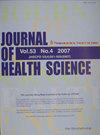Geospatial clustering of newly diagnosed HIV infected adults in Cross River State helps define new “hotspots”
引用次数: 1
Abstract
Introduction: A hotspot is a geographical location having evidence of high STIs/HIV prevalence, and/or behaviors that put people at high risk of becoming infected. Therefore, Nigeria, with almost two million people living with HIV, could be considered a giant “hotspot.” The main aim was to describe how the geospatial clustering of newly diagnosed HIV-infected adults in Cross River State helps define new “hotspots.”Methods: Secondary data collected between January 2020 and March 2020, identified and mapped around a presumed hotspot’s radius of influence (ROI), were analyzed using a “Hotspot Analysis” plugin in QGIS software. With a sample size of 3019, both seropositive and seronegative results were geo-referenced and the resultant map was analyzed to determine HIV-positive clusters.Results: From the 3019 spatial locations mapped, 720 (23.9%) were positive cases. Of these, 328 (45.6%) were thus estimated as being associated with the presumed hotspots. The remaining 392 (54.4%) were positive cases identified outside of the ROI of the originally presumed hotspots. The total number of mapped HIV testing services (HTS) points (both negative and positive cases) within the hotspot ROI was 1319, while those outside of the hotspot ROI were 1700.Conclusion: Unique hotspots where social gatherings occur tended to have a wider ROI. Targeted testing in these hard-to-reach communities is recommended.克罗斯河州新诊断的艾滋病毒感染成人的地理空间聚类有助于确定新的"热点"
简介:热点是有证据表明性传播感染/艾滋病毒高流行率和/或使人们处于高风险感染的行为的地理位置。因此,拥有近200万艾滋病毒感染者的尼日利亚可以被视为一个巨大的“热点”。主要目的是描述克罗斯河州新诊断的艾滋病毒感染成人的地理空间聚类如何帮助定义新的“热点”。方法:利用QGIS软件中的“热点分析”插件对2020年1月至2020年3月期间收集的二次数据进行分析,并围绕假定热点的影响半径(ROI)进行识别和绘制。样本量为3019例,血清阳性和血清阴性结果均进行地理参考,并分析结果图以确定hiv阳性聚集。结果:在绘制的3019个空间位置中,阳性病例720例(23.9%)。其中328例(45.6%)因此被估计与假定的热点有关。其余392例(54.4%)是在最初假定的热点的ROI之外确定的阳性病例。热点区域内的HIV检测服务点(包括阴性和阳性病例)总数为1319个,热点区域外的HIV检测服务点为1700个。结论:独特的社交聚会热点往往具有更广泛的投资回报率。建议在这些难以到达的社区进行有针对性的检测。
本文章由计算机程序翻译,如有差异,请以英文原文为准。
求助全文
约1分钟内获得全文
求助全文

 求助内容:
求助内容: 应助结果提醒方式:
应助结果提醒方式:


